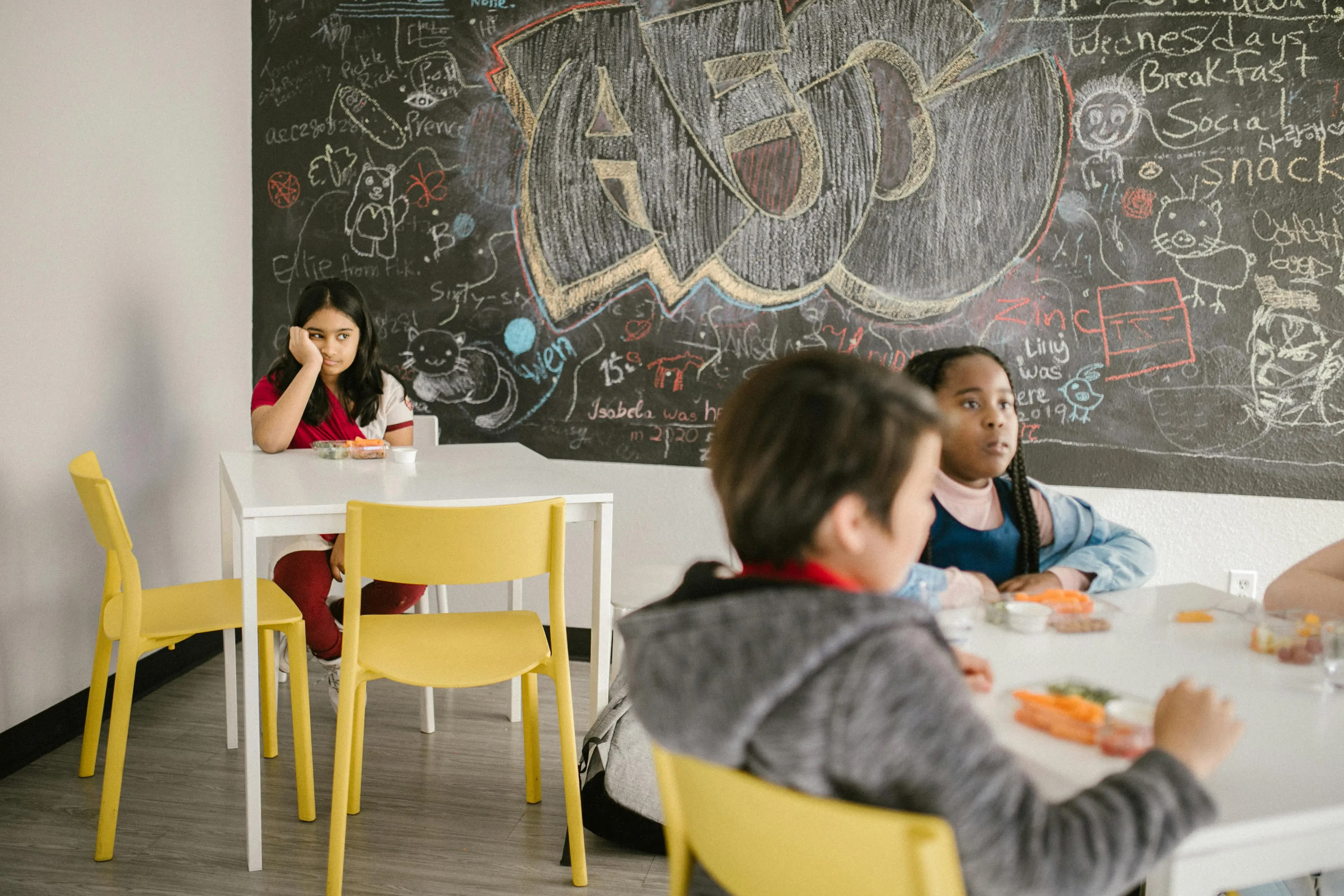Social anxiety in children can be a challenging issue for both the child and their family. It often presents as fear or discomfort in social situations, making it difficult for the child to engage with peers, participate in group activities, or make new friends. As a parent, you play a crucial role in helping your child manage and overcome their social anxiety. In this article, we’ll explore practical strategies that can support your child’s social development and build their confidence in social settings.

Understanding Social Anxiety in Children
Social anxiety in children is characterized by a strong fear of being judged or humiliated in social situations. Common symptoms may include avoiding group activities, difficulty speaking to peers, and physical signs like trembling, sweating, or blushing. Children with social anxiety often worry excessively about being embarrassed, which leads them to avoid social interactions altogether.[1]
It’s important to note that social anxiety typically emerges in older children and teenagers. In younger children, shyness or quietness in new environments may be mistaken for social anxiety, but extreme shyness can escalate into social anxiety if not addressed.
Signs of Social Anxiety in Children
Recognizing the signs of social anxiety is the first step in supporting your child. Children with social anxiety might:
- Be overly concerned about how others perceive them.
- Avoid raising their hand in class or speaking in front of groups.
- Express reluctance to attend social events, such as birthday parties or school activities.
- Experience physical symptoms like stomach aches or headaches before social interactions.
By identifying these signs early, you can take the necessary steps to help your child manage their anxiety before it escalates into a larger issue.[2]
How to Support Your Child with Social Anxiety
Supporting a child with social anxiety requires a combination of empathy, encouragement, and gradual exposure to social situations. Below are some practical strategies that can help:
1. Teach Healthy Coping Skills
One of the most effective ways to help your child manage their social anxiety is by teaching them healthy coping mechanisms. Self-soothing techniques, such as deep breathing or mindfulness exercises, can help your child calm their nerves in stressful situations. Practice these techniques at home, so your child can apply them when they feel anxious in social settings.
For example, guide your child through deep breathing exercises before attending a social event. This can reduce their anxiety and help them feel more in control of their emotions.
2. Encourage Gradual Social Exposure
Social anxiety often leads children to avoid uncomfortable situations, but avoidance reinforces their fear. Encourage your child to face social situations gradually, starting with smaller, manageable tasks. This is known as the stepladder approach, where children tackle less intimidating tasks first and work their way up to more challenging ones.[3]
For instance, if your child is nervous about talking to new people, start by encouraging them to greet a familiar friend or family member. Over time, increase the challenge by having them say hello to a new classmate or join a group activity at school.
3. Model Positive Self-Talk
Children learn a great deal by observing their parents' behavior. If they see you handling social situations calmly and confidently, they are more likely to adopt similar behaviors. Teach your child to engage in positive self-talk by modeling it yourself. Replace negative thoughts like "I can’t do this" with more supportive statements like "I can try, and it will get easier with practice."[4]
Encourage your child to focus on their strengths and to remind themselves that it’s okay to feel nervous sometimes, but it doesn’t define their ability to succeed.
4. Build Your Child’s Self-Esteem
Children with social anxiety often have low self-esteem, which can make it harder for them to connect with others. Building your child’s self-confidence can help them feel more comfortable in social situations. Praise their efforts when they step out of their comfort zone, even if it’s something as small as saying hello to someone new.
Positive reinforcement is key in boosting your child’s self-esteem. Encourage them to express their thoughts and opinions at home in a safe, supportive environment. This will help them feel more confident sharing their ideas outside the home.
5. Encourage Participation in Group Activities
Involvement in group activities, such as team sports or clubs, provides opportunities for your child to interact with peers in a structured setting. These experiences can help ease the anxiety of socializing because the focus is on an activity rather than on the social interaction itself. Over time, your child may become more comfortable initiating conversations and forming friendships through shared interests.
However, avoid forcing your child into activities they aren’t ready for. Instead, let them choose activities that align with their interests, which can make the experience more enjoyable and less intimidating.
6. Practice Social Skills at Home
Social anxiety can make even small interactions, such as making eye contact or smiling at a peer, feel overwhelming. Practice these skills at home by role-playing common social situations. For example, you could pretend to be a new friend your child is meeting for the first time, and rehearse different ways to start a conversation.[5]
By rehearsing these interactions in a safe environment, your child will gain confidence and be better prepared for real-life social encounters.
7. Seek Professional Help When Needed
If your child’s social anxiety persists despite your efforts, consider seeking professional help. A therapist who specializes in anxiety disorders can work with your child to develop coping strategies, improve social skills, and address any underlying issues contributing to their anxiety.
Cognitive Behavioral Therapy (CBT) is particularly effective for children with social anxiety. It helps them reframe negative thoughts and develop healthier responses to social situations. You can speak with your child’s school counselor, pediatrician, or a licensed therapist for additional support.
Final Thoughts
Social anxiety in children can feel overwhelming, but with the right support, your child can learn to manage their anxiety and build meaningful relationships. By teaching healthy coping skills, encouraging gradual social exposure, and modeling positive self-talk, you can help your child develop the confidence they need to thrive in social situations. Remember, it’s important to be patient and understanding as your child navigates their social anxiety journey.
If you find that your child’s anxiety is impacting their day-to-day life or preventing them from enjoying social activities, don’t hesitate to seek professional help. Early intervention can make a significant difference in managing social anxiety and improving your child’s overall well-being.
FAQs on Supporting Your Child with Social Anxiety
What are the common signs of social anxiety in children?
Children with social anxiety may avoid social situations, be reluctant to speak in front of groups, or express fear of being judged. Physical symptoms like trembling, blushing, and nausea before social events can also be signs.
At what age does social anxiety typically begin?
Social anxiety generally starts appearing in older children and teenagers. Younger children might show signs of shyness, but severe social avoidance or fear of judgment tends to emerge as they grow older.
How can I help my child build confidence in social situations?
Encourage gradual exposure to social situations through small, manageable steps. For instance, start by having your child greet a familiar friend and gradually work up to engaging with new people. Positive reinforcement and acknowledging their efforts can also boost confidence.
What role does self-esteem play in social anxiety?
Low self-esteem often accompanies social anxiety. Helping your child feel confident in their abilities and value can reduce their social fears. Praise their efforts, encourage self-expression, and create a supportive home environment to build their self-esteem.
Is it better to avoid social situations that make my child anxious?
Avoiding social situations reinforces anxiety and can make it worse. Instead, encourage your child to face their fears gradually. This can help them learn to manage their anxiety over time.
What professional treatments are available for children with social anxiety?
Cognitive Behavioral Therapy (CBT) is commonly recommended for children with social anxiety. It helps them change negative thought patterns and develop healthier coping mechanisms. Therapy can also provide a safe space for your child to work through their fears.
Can mindfulness help children manage social anxiety?
Yes, mindfulness techniques such as deep breathing and grounding exercises can help children manage anxiety in social situations by calming their thoughts and emotions. Teaching these techniques can provide your child with tools to self-soothe when they feel overwhelmed.
How can I tell if my child’s shyness is actually social anxiety?
Shyness is normal in many children, but if your child’s reluctance to engage in social situations is severe and lasts more than six months, it could be social anxiety disorder. Signs include avoiding social events and extreme fear of embarrassment.
When should I seek professional help for my child’s social anxiety?
If your child’s social anxiety is interfering with their daily life—such as avoiding school or struggling to make friends—it may be time to consult a professional. Early intervention through therapy or counseling can help manage the anxiety before it becomes more severe.
How can I support my child during social situations at school?
Communicate with your child’s teacher about their anxiety so that they can receive consistent support at school. Encourage your child to participate in class activities at their own pace, and praise their efforts when they take small steps towards overcoming their anxiety.
Sources
Hitchcock, Carla A et al. “Recent findings in social phobia among children and adolescents.” The Israel journal of psychiatry and related sciences vol. 46,1 (2009): 34-44.
Hitchcock, Carla A et al. “Recent findings in social phobia among children and adolescents.” The Israel journal of psychiatry and related sciences vol. 46,1 (2009): 34-44.
Rudaz, Myriam et al. “The moderating role of avoidance behavior on anxiety over time: Is there a difference between social anxiety disorder and specific phobia?.” PloS one vol. 12,7 e0180298. 3 Jul. 2017, doi:10.1371/journal.pone.0180298
https://www.verywellmind.com/what-is-observational-learning-2795402
Hur, Juyoen et al. “Social context and the real-world consequences of social anxiety.” Psychological medicine vol. 50,12 (2020): 1989-2000. doi:10.1017/S0033291719002022





